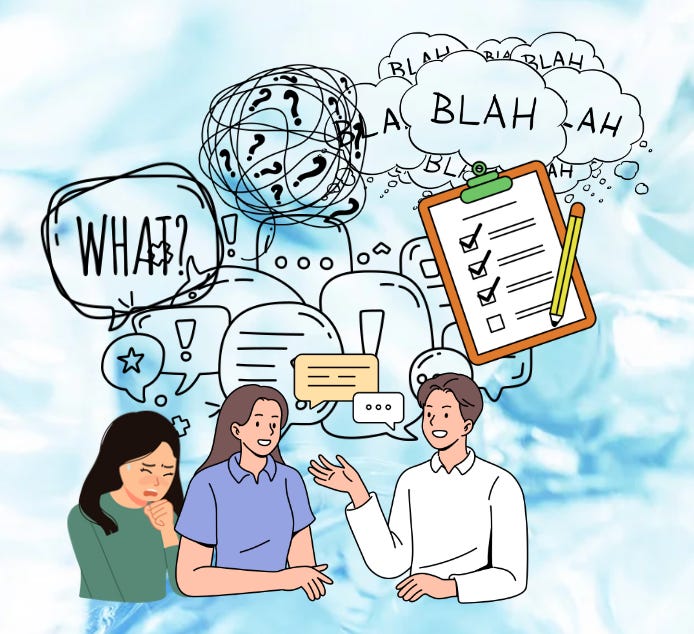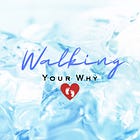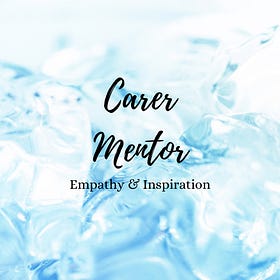'Beyond using the right words, how can we improve our interactions with doctors?'
#2 'How to close patient-doctor disconnects.'
What can we do to be heard in the medical consultation?
Each moment counts. How much alignment and understanding will you and the doctor have in an emergency?
How can we optimise the dynamics and interaction as the patient/caregiver?
Hello, Dear Reader! Welcome to our new Carer Mentor community members!’m Victoria. You can read why I’m publishing Carer Mentor here: Who Started Carer Mentor and Why?
Last week, I wrote about 'How to close patient-doctor disconnects.' Building our language/questions to feel like we've done our best to advocate for ourselves AND improve our chances of being heard in a medical consultation.
I shared my thoughts on why there can be a patient-doctor disconnect. The article by Katie Strick offered suggestions about advocating for ourselves, identifying actionable phrases to use with medical staff and how to close potential patient-physician disconnects.
We don’t have medical degrees, so being the constant questioner can make us feel like annoying children in a child-parent power dynamic.
Over the last decade of caregiving, I’ve developed a keen radar for those who ‘expect/feel entitled’ to deference at the outset and those who actively listen with empathy.
Today’s post highlights Dr Rachel Molloy ‘Listening not just hearing’ article, and I share my thoughts about approaches to close disconnects in an emergency.
Listening, not just hearing.
How a graduation speech made me think about listening in healthcare from both sides of the consultation room. By Dr Rachel Molloy.
Rachel is a retired GP and writer. She qualified as a doctor in 1995, spent a few years in hospital medicine, and worked in General Practice for 24 years. Now, she’s a GP appraiser and a mentor.
In this article, she offers meaningful insights about genuinely listening to someone from the dual perspective of being a GP and as a carer to her husband, Den.
Listening in healthcare - the doctor’s perspective (excerpts)
Listening properly has always been my pet subject in my job as a doctor, and particularly when teaching trainees. In a doctor’s consultation, there are so many visual cues as well as the words that are said. A person’s facial expression; their body language; how they point to the site of the pain; how they sit with arms folded in a defensive way when you ask them how many units of alcohol they drink. It’s what we lost for a while in the pandemic, having to do so much of our work remotely.
And listening needs to be active. When watching videos of consultations with trainees - a teaching method we use a lot - early on it is often necessary to point out how the patient is repeating themselves, because they have not felt heard. Actively responding to what is said, summarising the story back to the patient, reassures them that their story has been heard. Even assuming a posture that shows the patient you are ready to hear their story. That’s all we want, as patients, isn’t it : for someone to listen and make sense of our story.
Listening in healthcare - the carer’s perspective (excerpts)
Sharing my husband’s journey through cancer care has taught me a lot about the importance of listening, from the other side. We have seen what it feels like to NOT be listened to. The arrogant consultant who gives a monologue and does not listen to our concerns: a lack of time meaning he just wants to get the job done; or the walls he has built up in order to protect himself from patients’ emotions over the years. Not listening to us was one thing, but not listening to his own words and considering their impact, was another.
You leave a meeting like that feeling angry and unheard. We have struggled with the decisions made in MDT’s ( teams of consultants ) behind closed doors, where the patient's point of view is not heard. In one hospital they left all the direct conversations with patients to the nurse specialist and you never got to speak to the consultants making the decisions
How much richer - and safer - Den’s healthcare journey has felt when people have stopped and truly listened. Healthcare is, by necessity, scientific, and evidence-based. And a resource-strapped, understaffed service can struggle to have enough time to listen. But it is hearing people’s stories that brings the humanity into medicine.
You can read her full article here
A little context
Today, I feel blessed that there is a routine protocol for scans, tests, and consultations for cancer patients. While we’ve learnt to live in limbo between scans, results, and MDTs, we appreciate that changes are seen, caught, and reported early. We have built good relationships with the key specialist doctors and nurses, and I’m very grateful for their empathy and support.
Hospital emergencies and unexpected illnesses are very different.
For most of 2019, the hot-mess mix of Dad’s congestive heart failure, atrial fibrillation, bladder cancer, rheumatoid arthritis and subrenal aortic aneurysm …plus plus plus meant we were on a first-name basis with the paramedic teams. Midnight to 6 am was paramedic prime time and the start of 8-12 hour wait times in Accident and Emergency.
It was a nightmare rollercoaster that I’m very aware is repeating daily for many caregivers and patients. Emergencies need intervention. I know it can feel scary and intimidating, but call the paramedics if you have doubts, see an acute need or fear for a life-threatening situation.
To state the obvious, there is a big difference between the doctor’s pace, allotted time, and goals in routine monitoring consultations compared to emergencies. Consequently, I adapt my demeanour and approach. While I’m not confrontational, I feel much more of a burden to protect, champion, and advocate in emergencies.
Here are some actions I’ve done in accident and emergency departments (A&Es)
When someone is talking fast or in high-energy mode, I talk more deliberately, slow down, and use shorter sentences.
If someone tries to interrupt or speed me up, I repeat what I said and may speak more softly.
I’ve been that high-energy, extroverted person under pressure. It happens easily. When leading diverse teams, I had to learn to slow down to avoid misinterpretations and be sensitive in cross-cultural teamwork. Speed is counterproductive and can cause issues or miss something important.
Talking faster to me doesn’t mean I will accept something blindly, but it’s easy to feel you need to ‘just’ nod along. There’s that potential patient-doctor disconnect again!
And what if the patient is a non-native speaker? “Sensible,” or is it the French word for sensitive? Doctors can easily forget that medical terminology is like a foreign language!
Sometimes, deliberately, I talk slower and more softly. This negotiation tactic requires the other person to come closer to hear you and listen more attentively. It’s also a humane tactic for both you and the doctor, slowing everything down to align and clarify immediate actions.
In Accident and Emergency departments, there’s always stress, someone shouting, and high energy. I can be the ‘calm, clear, concerned’ one amidst their chaos but also the one that will not be ignored!
When someone uses jargon or acronyms, instead of nodding and accepting, I’ve taught myself to ask, ‘Could you please translate that into simpler words or spell out what exactly’s happening? I’m not familiar with that drug/treatment/acronym.’
I’ve not had to deal with any arrogance recently, but it’s worth noting that lots of jargon/acronyms are usually a sign of trying to elevate a negotiation position over someone else. The strategy of ‘I’m the expert here, and you just need to accept that my way is correct and do as I say.’ We all have rights, including understanding our diagnosis and treatment implications. ‘Never assume’ is my mantra. Things get missed, delayed and misinterpreted.
Even with my 1-pager medical history cheat sheet for doctors (5 copies always ready!), every emergency, I’ve repeated symptoms, allergies, medications, and medical history to at least five people. It’s not something a delirious patient can do either!
I ask the doctor to repeat what actions are being taken and why. I have a science background and am very familiar with drug therapies, medical terminology, and concepts. But I’m not trying to demonstrate what I know or try to elevate myself to meet the doctor’s level of knowledge.
I’m writing down/noting what exactly is happening so that I can double-check actions between each doctor, nurse, and health care assistant (HCA), especially when the shift changes.
I’m not a doctor, but when I know that the senior doctor on call has approved something, I can prompt if the actions have not been completed, check for the results, and ask if we’ll likely go home or be admitted.
Now you know why I pack many things in my caregiver’s Go bag, in addition to my parent’s Go bag. I camped until Dad was admitted to a ward or we returned home. I’m not saying you have to do this, but this is right for me in our situation with our hospital. (If you can, think who/how you can be ready to tag-team with other friends/family members.)
The longest I’ve been in A&E was with Dad for sixteen hours. I cared for Dad by his bed after his second bladder transection for around ten hours, and stayed with Mum overnight in her cubicle (with my own escalating COVID temperature) to be 100% sure there was no overnight discharge.
Two articles I wrote last year explore communication disconnects, personal assumptions/expectations and how we can build bridges of understanding for productive communication. Not everyone has the same cultural reference points and communication style as we do. Never assume is always my mantra.
What’s worked for you? What would you add?
P.S A special hug and empathy to all the patients/caregivers in the UK who are feeling stressed and worried about the overhaul to the benefits system and changes in how the NHS will be run in England.
Carers UK and mobilise (2 carer organisations) Respond to the Government publication of the welfare reform green paper.
Helen Walker, Chief Executive of Carers UK, said (March 18):
“We are very concerned that the plans the Government has published today could hit unpaid carers, disabled people and their families very hard, if implemented in full. Read the full press release, and a roundup of the news events that could impact us.
Carer Mentor by Victoria is free to read. If you have the means and would like to support the publication, I welcome monthly (£6) and annual (£50) subscriptions. Thank you for your ongoing support.
Your support is greatly appreciated Thank you!
Please remember to ‘❤️’ LIKE the article to guide others to these resources





Boy this brought back memories of my demented husband and I at a 4:30 pm office visit on a Friday. Our internal medicine doc, usually a great guy, completely blew me off about a new devastating symptom. I felt totally abandoned. We never went back there. 😭
A much needed article! I’ve never found anything to work. I always thought it was because I was too aggressive. I need to employ your philosophy.